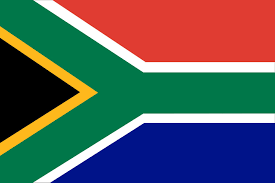JOHANNESBURG, July 23: South Africa has reassured its BASIC partners, including India, that it remains fully committed to plans for addressing global climate change issues.
The BASIC countries are a bloc of four large newly industrialised countries – Brazil, South Africa, India and China.
“The position of the new South African government remains one of unwavering solidarity with our fellow members of the global South. We regard the BASIC group as a key strategic platform for articulating and advancing the interests of developing countries towards a more sustainable, just and equitable international order,” newly-appointed Minister of Forestry, Fisheries and the Environment, Dr Dion George, said at the BASIC Ministerial Meeting on Climate Change, hosted in Wuhan by China this week.
“I want to assure you that South Africa remains fully committed to meeting its undertakings under the UNFCCC and its Paris Agreement and is working on its second Nationally Determined Contribution.
“We will contribute our fair share and not make false promises that we are unable to keep. Furthermore, South Africa has committed to updating and submitting its first Biennial Transparency Report in time for Baku,” George said. He was referring to the UN’s Cop 29 Climate Change Conference to be held in Baku, Azerbaijan, from November 11 to 24 this year.
George said South Africa has focused on implementing ambitious actions to reduce greenhouse gas emissions, including through the Just Energy Transition Investment Plan, through actions around electricity, electric vehicles and green hydrogen.
He called on the BASIC members and other countries to partner with South Africa to achieve this.
“The Just Energy Transition Partnership with some developed countries is only a small component of our much larger energy transition plan, which in turn is only one sector of the all-of-economy and all-of-society just transition we seek in line with the COP 28 UAE Vision,” George said, as he shared that the South African Parliament had adopted a Climate Change Bill.
“Since 2011, when we outlined South Africa’s response to climate change in our National Climate Change Response White Paper, we have been putting in place the components of an integrated response. Now, this Bill will integrate all of these components into a robust legal framework, and mainstream climate action across government,” the minister said.
George highlighted a few challenges that BASIC countries were facing.
“I believe all of us have heard feedback from our experts who recently participated in the sessional meetings of the United Nations Framework Convention on Climate Change in Bonn, Germany, where progress was slow. Our assessment is that this is aimed at putting pressure on the BASIC countries to assume more obligations than they are expected to under the Convention and its Paris Agreement,” he said.
“We have also witnessed a skewed ambition narrative that focuses almost exclusively on mitigation, and an attempt to weaken the discussions in the Just Transition Work Programme, as well as on the New Collective Quantified Goal on Finance,” George added, calling for serious support from developed countries.
“Developed countries’ commitment to providing adequate support to developing countries, is key for the Paris Agreement to be truly applicable to all. The global North should ensure no backtracking on support obligations,” George pleaded. (PTI)
Trending Now
E-Paper


